Hard to believe the year is almost over and it’s time for a quarterly post that I really enjoy doing. There are always great books out there and I love to just highlight some books that seemed to have been trending in different circles for the past three months. Like always this is not accurate, I had to use my own judgement to culling most books so we can cover more genres.
July
 The White Princess opens as the news of the Battle of Bosworth is brought to Princess Elizabeth of York, who will learn not only which rival royal house has triumphed, Tudor or York, but also which suitor she must marry: Richard III her lover, or Henry Tudor her enemy.
The White Princess opens as the news of the Battle of Bosworth is brought to Princess Elizabeth of York, who will learn not only which rival royal house has triumphed, Tudor or York, but also which suitor she must marry: Richard III her lover, or Henry Tudor her enemy.
 A chilling and intense first novel, the story of a solitary young woman drawn into an online world run by a charismatic web guru who entices her into impersonating a glamorous but desperate woman. An ingeniously plotted novel of stolen identity, Kiss Me First is brilliantly frightening about the lies we tell—to ourselves, to others, for good, and for ill.
A chilling and intense first novel, the story of a solitary young woman drawn into an online world run by a charismatic web guru who entices her into impersonating a glamorous but desperate woman. An ingeniously plotted novel of stolen identity, Kiss Me First is brilliantly frightening about the lies we tell—to ourselves, to others, for good, and for ill.
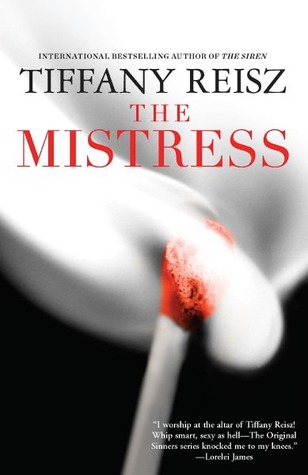 The final book in The Original Sinners Series; The Mistress follows Nora Sutherlin as she has being held, bound and naked. Under different circumstances, she would enjoy the situation immensely, but her captor isn’t interested in play. Or pity.
The final book in The Original Sinners Series; The Mistress follows Nora Sutherlin as she has being held, bound and naked. Under different circumstances, she would enjoy the situation immensely, but her captor isn’t interested in play. Or pity.
 Who is A. N. Dyer? & Sons is a literary masterwork for readers of The Art of Fielding, The Emperor’s Children, and Wonder Boys—the panoramic, deeply affecting story of an iconic novelist, two interconnected families, and the heartbreaking truths that fiction can hide.
Who is A. N. Dyer? & Sons is a literary masterwork for readers of The Art of Fielding, The Emperor’s Children, and Wonder Boys—the panoramic, deeply affecting story of an iconic novelist, two interconnected families, and the heartbreaking truths that fiction can hide.
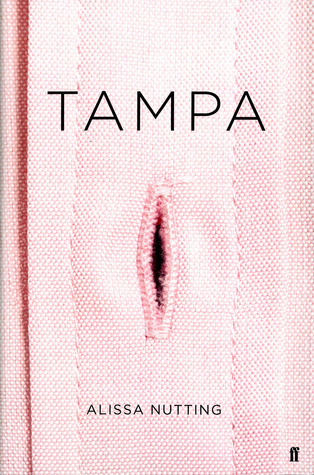 Celeste Price is an eighth-grade English teacher in suburban Tampa. She’s undeniably attractive. She drives a red Corvette with tinted windows. Her husband, Ford, is rich, square-jawed, and devoted to her. But Celeste’s devotion lies elsewhere. She has a singular sexual obsession—fourteen-year-old boys.
Celeste Price is an eighth-grade English teacher in suburban Tampa. She’s undeniably attractive. She drives a red Corvette with tinted windows. Her husband, Ford, is rich, square-jawed, and devoted to her. But Celeste’s devotion lies elsewhere. She has a singular sexual obsession—fourteen-year-old boys.
August
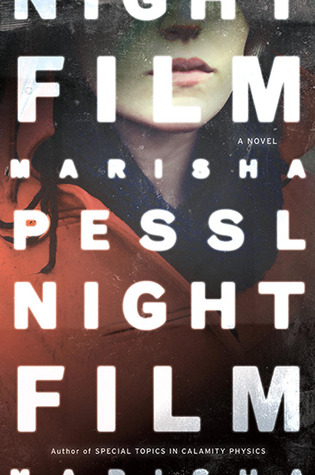 Brilliant, haunting, breathtakingly suspenseful, Night Film is a superb literary thriller by The New York Times bestselling author of the blockbuster debut Special Topics in Calamity Physics. A spellbinding new novel by the dazzlingly inventive Marisha Pessl, will hold you in suspense until you turn the final page.
Brilliant, haunting, breathtakingly suspenseful, Night Film is a superb literary thriller by The New York Times bestselling author of the blockbuster debut Special Topics in Calamity Physics. A spellbinding new novel by the dazzlingly inventive Marisha Pessl, will hold you in suspense until you turn the final page.
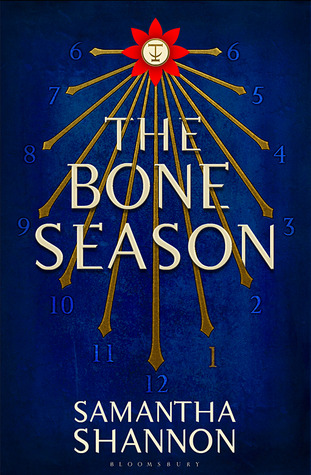 The Bone Season introduces a compelling heroine—a young woman learning to harness her powers in a world where everything has been taken from her. It also introduces an extraordinary young writer, with huge ambition and a teeming imagination. Samantha Shannon has created a bold new reality in this riveting debut.
The Bone Season introduces a compelling heroine—a young woman learning to harness her powers in a world where everything has been taken from her. It also introduces an extraordinary young writer, with huge ambition and a teeming imagination. Samantha Shannon has created a bold new reality in this riveting debut.
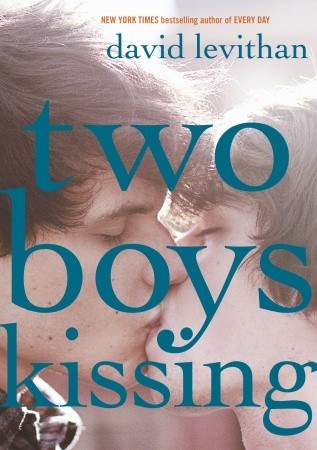 Two Boys Kissing by David Levithan tells the based-on-true-events story of Harry and Craig, two 17-year-olds who are about to take part in a 32-hour marathon of kissing to set a new Guinness World Record—all of which is narrated by a Greek Chorus of the generation of gay men lost to AIDS.
Two Boys Kissing by David Levithan tells the based-on-true-events story of Harry and Craig, two 17-year-olds who are about to take part in a 32-hour marathon of kissing to set a new Guinness World Record—all of which is narrated by a Greek Chorus of the generation of gay men lost to AIDS.
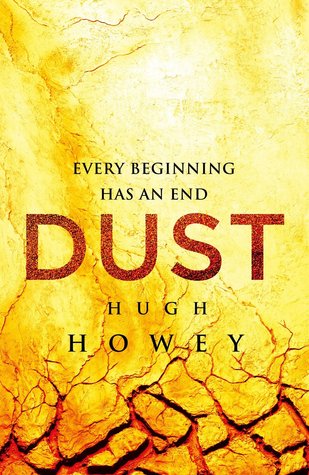 Dust is the final book in the Solo series by Hugh Howey. Jules knows what her predecessors created. She knows they are the reason life has to be lived in this way. And she won’t stand for it. But Jules no longer has supporters. And there is far more to fear than the toxic world beyond her walls. A poison is growing from within Silo 18. One that cannot be stopped. Unless Silo 1 step in.
Dust is the final book in the Solo series by Hugh Howey. Jules knows what her predecessors created. She knows they are the reason life has to be lived in this way. And she won’t stand for it. But Jules no longer has supporters. And there is far more to fear than the toxic world beyond her walls. A poison is growing from within Silo 18. One that cannot be stopped. Unless Silo 1 step in.
 Never Go Back is an epic and interrupted journey all the way from the snows of South Dakota, former military cop Jack Reacher has finally made it to Virginia. His destination: a sturdy stone building a short bus ride from Washington D.C., the headquarters of his old unit, the 110th MP. It was the closest thing to a home he ever had.
Never Go Back is an epic and interrupted journey all the way from the snows of South Dakota, former military cop Jack Reacher has finally made it to Virginia. His destination: a sturdy stone building a short bus ride from Washington D.C., the headquarters of his old unit, the 110th MP. It was the closest thing to a home he ever had.
September
 Fangirl is a coming-of-age tale of fan fiction, family and first love. Cath is a Simon Snow fan. Okay, the whole world is a Simon Snow fan . . . But for Cath, being a fan is her life — and she’s really good at it. She and her twin sister, Wren, ensconced themselves in the Simon Snow series when they were just kids; it’s what got them through their mother leaving.
Fangirl is a coming-of-age tale of fan fiction, family and first love. Cath is a Simon Snow fan. Okay, the whole world is a Simon Snow fan . . . But for Cath, being a fan is her life — and she’s really good at it. She and her twin sister, Wren, ensconced themselves in the Simon Snow series when they were just kids; it’s what got them through their mother leaving.
 Suspenseful, sweeping, piercingly intimate, The Lowland expands the range of one of our most dazzling storytellers, seamlessly interweaving the historical and the personal across generations and geographies. This masterly novel of fate and will, exile and return, is a tour de force and an instant classic.
Suspenseful, sweeping, piercingly intimate, The Lowland expands the range of one of our most dazzling storytellers, seamlessly interweaving the historical and the personal across generations and geographies. This masterly novel of fate and will, exile and return, is a tour de force and an instant classic.
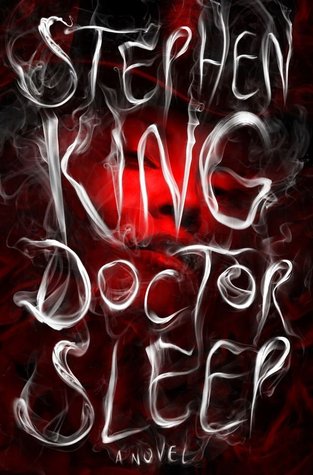 Doctor Sleep sees Stephen King return to the characters and territory of one of his most popular novels ever, The Shining, in this instantly riveting novel about the now middle-aged Dan Torrance (the boy protagonist of The Shining) and the very special twelve-year-old girl he must save from a tribe of murderous paranormals.
Doctor Sleep sees Stephen King return to the characters and territory of one of his most popular novels ever, The Shining, in this instantly riveting novel about the now middle-aged Dan Torrance (the boy protagonist of The Shining) and the very special twelve-year-old girl he must save from a tribe of murderous paranormals.
 Told with wit, dizzying imagination, and dark humour, Booker Prize-winning Margaret Atwood’s unpredictable, chilling and hilarious MaddAddam takes us further into a challenging dystopian world and holds up a skewed mirror to our own possible future. An unexpectedly finish to the trilogy.
Told with wit, dizzying imagination, and dark humour, Booker Prize-winning Margaret Atwood’s unpredictable, chilling and hilarious MaddAddam takes us further into a challenging dystopian world and holds up a skewed mirror to our own possible future. An unexpectedly finish to the trilogy.
 More Than This tells the story of a boy called Seth drowns, desperate and alone in his final moments, losing his life as the pounding sea claims him. But then he wakes. He is naked, thirsty, starving. But alive. How is that possible? He remembers dying, his bones breaking, his skull dashed upon the rocks.
More Than This tells the story of a boy called Seth drowns, desperate and alone in his final moments, losing his life as the pounding sea claims him. But then he wakes. He is naked, thirsty, starving. But alive. How is that possible? He remembers dying, his bones breaking, his skull dashed upon the rocks.
Now it’s your turn, let me know of the books that you are surprised that didn’t make this list (there were heaps of them). What have you read and enjoyed and what do you expect to trend next quarter? I’m expecting Goldfinch by Donna Tartt will be trending next month, do you have any predictions?
 Now that September comes to a close, I would like to hear what people thought of The Pillars of the Earth. Did you read it? Did you find it long winded? Or any other comments you want to make of this novel. Personally I had some difficulty reading this, and while I wouldn’t say I really enjoyed this book, I did find the approach a little childish at times.
Now that September comes to a close, I would like to hear what people thought of The Pillars of the Earth. Did you read it? Did you find it long winded? Or any other comments you want to make of this novel. Personally I had some difficulty reading this, and while I wouldn’t say I really enjoyed this book, I did find the approach a little childish at times.
 People are talking about the changes to the Man Booker Prize and I thought I would weigh in as well. I’ve already talked about
People are talking about the changes to the Man Booker Prize and I thought I would weigh in as well. I’ve already talked about  Title: The Pillars of the Earth (
Title: The Pillars of the Earth ( The White Princess opens as the news of the Battle of Bosworth is brought to Princess Elizabeth of York, who will learn not only which rival royal house has triumphed, Tudor or York, but also which suitor she must marry: Richard III her lover, or Henry Tudor her enemy.
The White Princess opens as the news of the Battle of Bosworth is brought to Princess Elizabeth of York, who will learn not only which rival royal house has triumphed, Tudor or York, but also which suitor she must marry: Richard III her lover, or Henry Tudor her enemy. A chilling and intense first novel, the story of a solitary young woman drawn into an online world run by a charismatic web guru who entices her into impersonating a glamorous but desperate woman. An ingeniously plotted novel of stolen identity,
A chilling and intense first novel, the story of a solitary young woman drawn into an online world run by a charismatic web guru who entices her into impersonating a glamorous but desperate woman. An ingeniously plotted novel of stolen identity,  The final book in The Original Sinners Series; The Mistress follows Nora Sutherlin as she has being held, bound and naked. Under different circumstances, she would enjoy the situation immensely, but her captor isn’t interested in play. Or pity.
The final book in The Original Sinners Series; The Mistress follows Nora Sutherlin as she has being held, bound and naked. Under different circumstances, she would enjoy the situation immensely, but her captor isn’t interested in play. Or pity. Who is A. N. Dyer? & Sons is a literary masterwork for readers of The Art of Fielding, The Emperor’s Children, and Wonder Boys—the panoramic, deeply affecting story of an iconic novelist, two interconnected families, and the heartbreaking truths that fiction can hide.
Who is A. N. Dyer? & Sons is a literary masterwork for readers of The Art of Fielding, The Emperor’s Children, and Wonder Boys—the panoramic, deeply affecting story of an iconic novelist, two interconnected families, and the heartbreaking truths that fiction can hide. Celeste Price is an eighth-grade English teacher in suburban
Celeste Price is an eighth-grade English teacher in suburban  Brilliant, haunting, breathtakingly suspenseful, Night Film is a superb literary thriller by The New York Times bestselling author of the blockbuster debut Special Topics in Calamity Physics. A spellbinding new novel by the dazzlingly inventive Marisha Pessl, will hold you in suspense until you turn the final page.
Brilliant, haunting, breathtakingly suspenseful, Night Film is a superb literary thriller by The New York Times bestselling author of the blockbuster debut Special Topics in Calamity Physics. A spellbinding new novel by the dazzlingly inventive Marisha Pessl, will hold you in suspense until you turn the final page. The Bone Season introduces a compelling heroine—a young woman learning to harness her powers in a world where everything has been taken from her. It also introduces an extraordinary young writer, with huge ambition and a teeming imagination. Samantha Shannon has created a bold new reality in this riveting debut.
The Bone Season introduces a compelling heroine—a young woman learning to harness her powers in a world where everything has been taken from her. It also introduces an extraordinary young writer, with huge ambition and a teeming imagination. Samantha Shannon has created a bold new reality in this riveting debut. Two Boys Kissing by David Levithan tells the based-on-true-events story of Harry and Craig, two 17-year-olds who are about to take part in a 32-hour marathon of kissing to set a new Guinness World Record—all of which is narrated by a Greek Chorus of the generation of gay men lost to AIDS.
Two Boys Kissing by David Levithan tells the based-on-true-events story of Harry and Craig, two 17-year-olds who are about to take part in a 32-hour marathon of kissing to set a new Guinness World Record—all of which is narrated by a Greek Chorus of the generation of gay men lost to AIDS. Dust is the final book in the Solo series by Hugh Howey. Jules knows what her predecessors created. She knows they are the reason life has to be lived in this way. And she won’t stand for it. But Jules no longer has supporters. And there is far more to fear than the toxic world beyond her walls. A poison is growing from within Silo 18. One that cannot be stopped. Unless Silo 1 step in.
Dust is the final book in the Solo series by Hugh Howey. Jules knows what her predecessors created. She knows they are the reason life has to be lived in this way. And she won’t stand for it. But Jules no longer has supporters. And there is far more to fear than the toxic world beyond her walls. A poison is growing from within Silo 18. One that cannot be stopped. Unless Silo 1 step in. Never Go Back is an epic and interrupted journey all the way from the snows of South Dakota, former military cop Jack Reacher has finally made it to Virginia. His destination: a sturdy stone building a short bus ride from Washington D.C., the headquarters of his old unit, the 110th MP. It was the closest thing to a home he ever had.
Never Go Back is an epic and interrupted journey all the way from the snows of South Dakota, former military cop Jack Reacher has finally made it to Virginia. His destination: a sturdy stone building a short bus ride from Washington D.C., the headquarters of his old unit, the 110th MP. It was the closest thing to a home he ever had. Fangirl is a coming-of-age tale of fan fiction, family and first love. Cath is a Simon Snow fan. Okay, the whole world is a Simon Snow fan . . . But for Cath, being a fan is her life — and she’s really good at it. She and her twin sister, Wren, ensconced themselves in the Simon Snow series when they were just kids; it’s what got them through their mother leaving.
Fangirl is a coming-of-age tale of fan fiction, family and first love. Cath is a Simon Snow fan. Okay, the whole world is a Simon Snow fan . . . But for Cath, being a fan is her life — and she’s really good at it. She and her twin sister, Wren, ensconced themselves in the Simon Snow series when they were just kids; it’s what got them through their mother leaving. Suspenseful, sweeping, piercingly intimate, The Lowland expands the range of one of our most dazzling storytellers, seamlessly interweaving the historical and the personal across generations and geographies. This masterly novel of fate and will, exile and return, is a tour de force and an instant classic.
Suspenseful, sweeping, piercingly intimate, The Lowland expands the range of one of our most dazzling storytellers, seamlessly interweaving the historical and the personal across generations and geographies. This masterly novel of fate and will, exile and return, is a tour de force and an instant classic. Doctor Sleep sees Stephen King return to the characters and territory of one of his most popular novels ever, The Shining, in this instantly riveting novel about the now middle-aged Dan Torrance (the boy protagonist of The Shining) and the very special twelve-year-old girl he must save from a tribe of murderous paranormals.
Doctor Sleep sees Stephen King return to the characters and territory of one of his most popular novels ever, The Shining, in this instantly riveting novel about the now middle-aged Dan Torrance (the boy protagonist of The Shining) and the very special twelve-year-old girl he must save from a tribe of murderous paranormals. Told with wit, dizzying imagination, and dark humour, Booker Prize-winning Margaret Atwood’s unpredictable, chilling and hilarious MaddAddam takes us further into a challenging dystopian world and holds up a skewed mirror to our own possible future. An unexpectedly finish to the trilogy.
Told with wit, dizzying imagination, and dark humour, Booker Prize-winning Margaret Atwood’s unpredictable, chilling and hilarious MaddAddam takes us further into a challenging dystopian world and holds up a skewed mirror to our own possible future. An unexpectedly finish to the trilogy. More Than This tells the story of a boy called Seth drowns, desperate and alone in his final moments, losing his life as the pounding sea claims him. But then he wakes. He is naked, thirsty, starving. But alive. How is that possible? He remembers dying, his bones breaking, his skull dashed upon the rocks.
More Than This tells the story of a boy called Seth drowns, desperate and alone in his final moments, losing his life as the pounding sea claims him. But then he wakes. He is naked, thirsty, starving. But alive. How is that possible? He remembers dying, his bones breaking, his skull dashed upon the rocks. Title: My Notorious Life by Madame X (
Title: My Notorious Life by Madame X (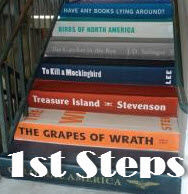
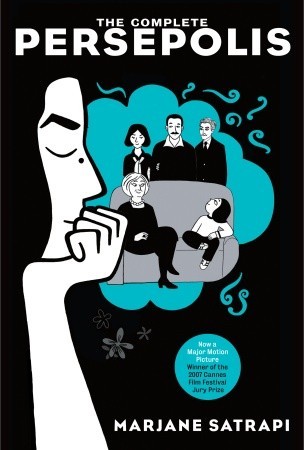 Persepolis by Marjane Satrapi
Persepolis by Marjane Satrapi Fahrenheit 451 by Ray Bradbury
Fahrenheit 451 by Ray Bradbury
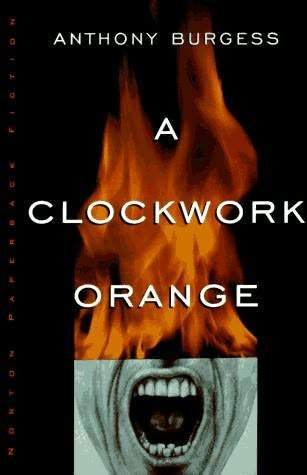 A Clockwork Orange by Anthony Burgess
A Clockwork Orange by Anthony Burgess 

 Title: Golden Parasol (
Title: Golden Parasol (
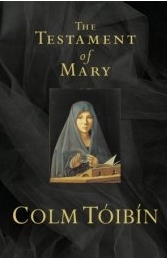 Title: The Testament of Mary (
Title: The Testament of Mary ( Title: The Castle of Otranto (
Title: The Castle of Otranto (